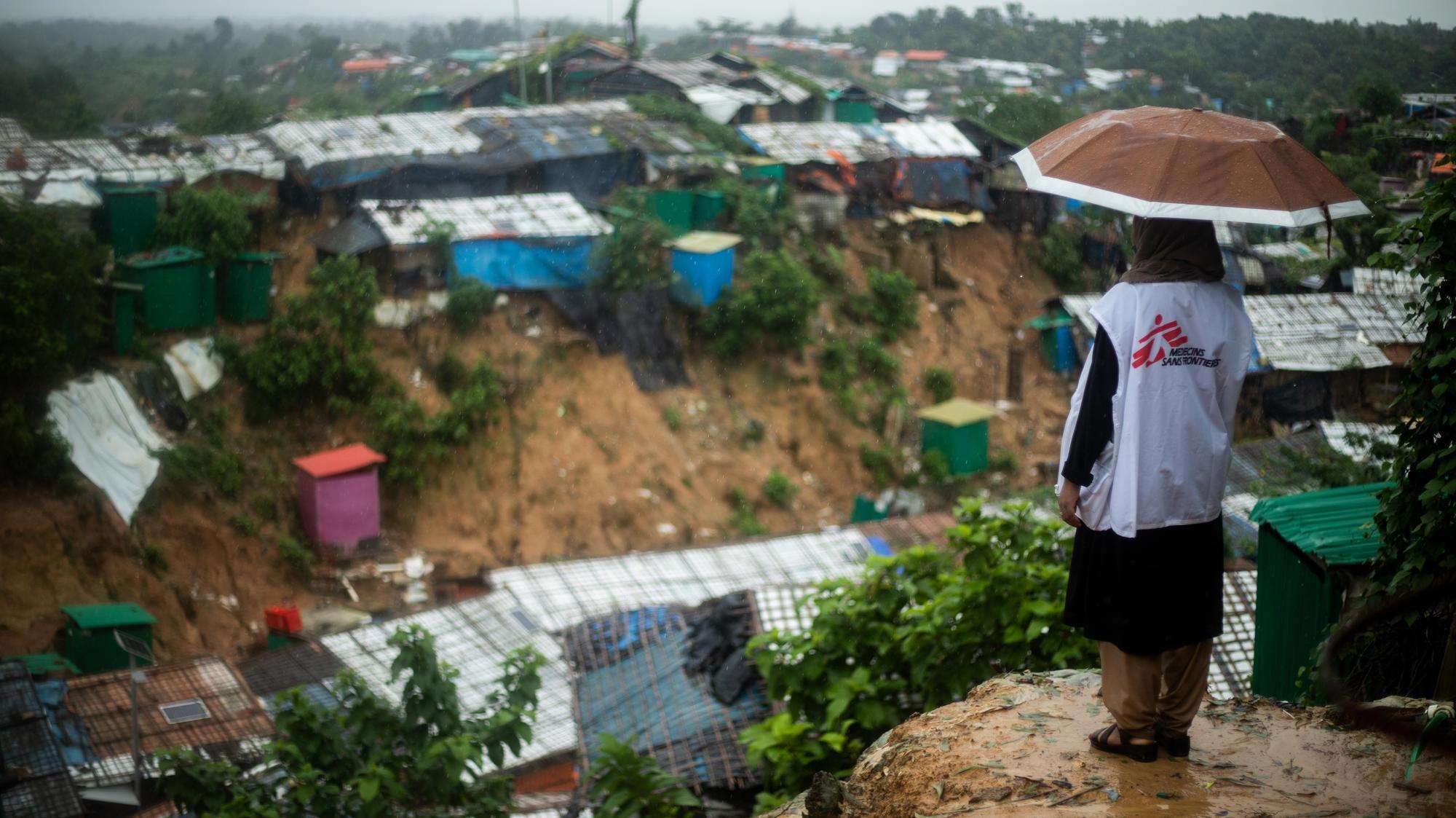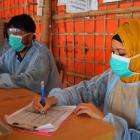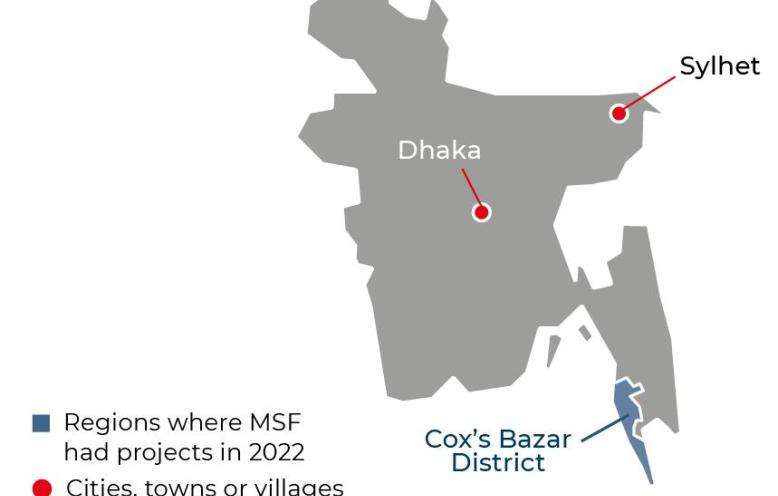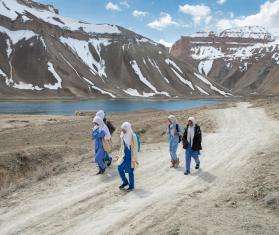In April, we carried out a survey on water, hygiene, and sanitation in the refugee camps, which showed that 88 percent of inhabitants had no access to proper sanitation facilities, while 76 percent of the available toilets were overflowing.
In Kamrangirchar, a district in the capital city of Dhaka, we collaborated with the Center for Injury Prevention and Research Bangladesh to conduct a feasibility study in two metal factories, aiming to improve work safety and reduce injuries and focusing particularly on female and young workers.
In April, Dhaka hospitals started seeing an increase in cases of acute watery diarrhea. In response, our teams donated supplies of saline solution and other medical materials to the Ministry of Health.
In July, MSF teams supported the Bangladesh Rehabilitation Assistance Committee’s response to a severe flash flood in Sylhet, in the northeast of the country. We distributed water, hygiene and sanitation kits to households, and ran mobile clinics in boats to provide emergency medical care.
In addition, we continued to offer technical support to the Ministry of Health to raise awareness among health workers and the community of the dangers of methanol poisoning, contributing to the development of the National Mental Health Act which was issued in 2022.










